
Design & Fabricated by EnviroWay Team
Competitive Quality Products through Design Engineering Excellence
EnviroWay engineers provide every support in choosing, designing, delivering and installing the product to produce the expected water and wastewater treatment plant performance, while taking account of your budget, space and water quality requirements. We cover the complete spectrum of piping, mechanical, civil and structural, electrical, instrumentation, and process disciplines.
Backed by rich industry experience of several years, we are able to provide our clients with technically advanced range of water & waste water designed products as per their requirements. We endeavor to constantly upgrade our design, process, engineering and product knowledge as a part of continual improvement in our quality & efficiency. Below are the different types of water and waste treatment engineering products, we design based on our understanding and experience of water management.
Recommended Products

Oil Skimmer
Capacity Design: As Per Flow & Oil Content
Oil skimmer removes floating oil & grease from waste water. Floating oil adheres to skimming media (belt / tube / rope); Oil needs to be removed at primary stage for efficient functioning of secondary treatment stage of STP / ETP
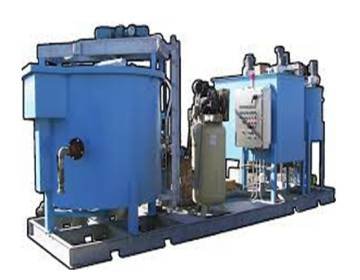
DAF System for removal of High Oil, Grease & Fine Solids
Capacity Design: As Per Pollutant Load & Flow
Dissolved Air Flotation system removes suspended fine solids & oil by dissolving air under pressure & then releasing air at atmosphere pressure in flotation tank which pushes fine solid & oils at top & same is being removed by rotating scoop

Flash Mixture Tank / Chemical Mixing Tank With Agitator
Capacity Design: As per Chemical Mixing & Dosing Requirements
Flash mixture tank with conical bottom for solid deposition fitted with mechanical agitator to homogenize the coagulant in water to from micro flocks for speed sedimentation of suspended solids. Used for ETP/STP & other treatment plant
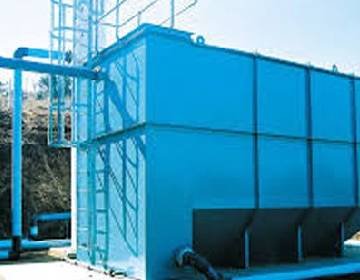
Lamella Plate Settler for Primary Solid Separation
Capacity Design: As per Flow and Suspended Solid Load
Lamella plate settler is designed with vertically inclined plates inside the lamella tank with specific gap between two plates for efficient solid removal from water & process liquids resulting the supernatant clean & clear
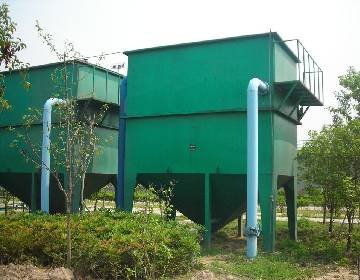
Tube Settler with Media
Capacity Design: As per Flow and Suspended Solid Load
Tube settler’s uses tube deck media sloped at an angle of 60° and adjacent to each other, which combine to form an increased settling area to capture the settle-able fine flocs beneath tube settlers & allow larger flocs to travel to tank bottom in a more settle-able form
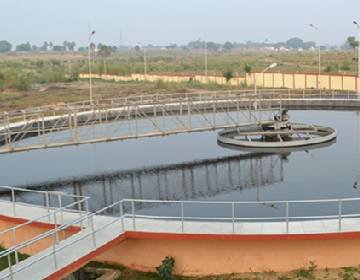
Clarifier Mechanism for Sedimentation & Separation of Suspended Solids
Capacity Design: As per Flow and Suspended Solid Load
Primary Clarifier is designed for sedimentation and separation of suspended load whereas Secondary Clarifier is designed to sediment the MLSS by gravity at the bottom and to brings all settled solid at centre pit by the rotating rake skimming system for processing
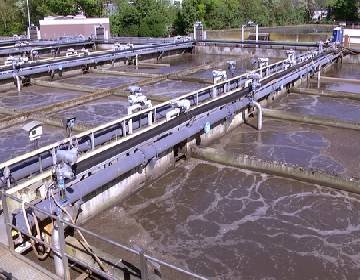
Aeration System – Air Diffusion System
Capacity Design: As per Flow & BOD / COD Load
Fine Bubble Diffuser System provides DO more evenly in aeration basin for survival of beneficial microbes which degrades COD & BOD of the waste water more efficiently. Coarse Bubble Diffusers homogenizes the effluent & sludge in equalization & sludge holding tank
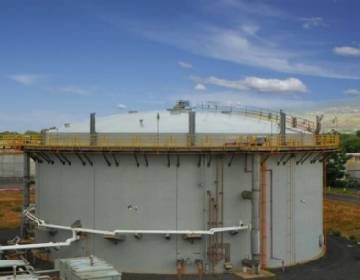
USBR Reactor – Anaerobic Digestor for High COD & BOD Load
Capacity Design: As per Flow & BOD / COD Load
UASBR reactor is a methanogenic (methane-producing) digester used for treating industrial effluent with high load of COD & BOD ranging from 4000mg/l – 100000mg/l and above. Methane produced through the system can be utilized as fuel for various purposes
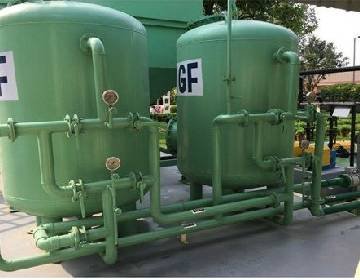
ACF for Removal of Organic Matter, Colour & Odour
Capacity Design: As per the Flow
Activated Carbon Filter consist of activated carbon granules supported by very fine quartz filter media. Due to its high degree of micro porosity, activated carbons provide a huge surface area for removal of colour & odour along with suspended solids, dust & dirt.

Softener – For Soft Water Generation
Capacity Design: As Per Flow & Water Hardness
Removal of calcium, magnesium & certain other metal cations to make soft water for industrial use & other purpose involving physical and chemical process that filters the water through an exchange media known as resin or zeolite

Micron Filtration System – Removal of SS up to 1 micron
Capacity Design: As per the Flow
Micron Cartridge Filters works on physical filtration process which filters water to micron rating of around 0.1 micron; Achieved by specially designed cartridge elements housed inside the filter vessel for removal of dirt, debris & microscope particles from water

Ultra Filtration – Removal of Micro Organic Molecules & Colloids
Capacity Design: As per requirement
High quality suspended solid filtration system with membrane of pore size 0.01 micron; Ultrafiltration (UF) is a pressure-driven barrier to suspended solids, bacteria, viruses, endotoxins and other pathogens to produce water with very high purity and low silt density.
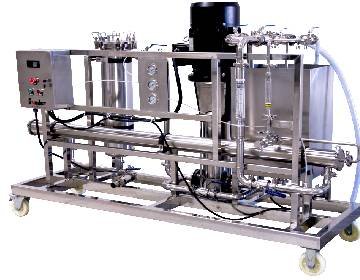
Nano Filtration for Removal of Bacteria & Viruses
Capacity Design: As Per Flow
Nano-filtration is a relatively recent membrane filtration process with membrane pore size of approx 0.001 micron & it removes most organic molecules, viruses & natural organic matter & also removes divalent ion to soften the hard water.

Reverse Osmosis – Removes all Organic Molecules & Viruses
Capacity Design: As per the Flow
Reverse osmosis filters have a pore size around 0.0001 micron. After water passes through a reverse osmosis filter, it is essentially pure water. RO removes most minerals that are present in the water. It also removes monovalent ions, which means that it desalinates the water.
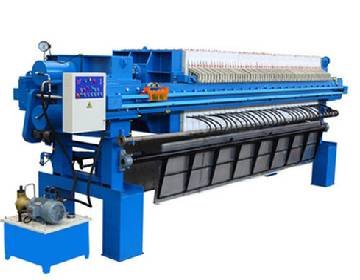
Filter Press for Dewatering the Sludge
Capacity Design: As per Sludge Generation
Filter press is a batch operation fixed volume machine that dewaters the excess sludge produced in the treatment of waste water in STP & ETP using pressure filtration. Sludge slurry is pumped into filter press through screw pump & sludge is dewatered under pressure

Screw Press for Sludge Thickening and Squeezing
Capacity Design: As per Sludge Generation
Sludge extrusion dewatering equipment works on principle of screw extrusion, through strong squeezing force generated by change of screw diameter and screw pitch, and the tiny gap between the floating ring and the fixed ring, to realize solid-liquid separation.

Sludge Dryer
Capacity Design: As per Moisture Contents in the sludge.
Sludge Dryer is an intermediate sludge treatment process that consists of evaporating the water in the sludge. It significantly reduces the volume and weight of the sludge which makes easier sludge disposal and reduce transportation cost. It also improves the quality of wastewater biosolids.

Compressed Bio Gas Plant – CBG Plant
Capacity Design: As per CBG
Compressed Biogas (CBG) produced from the CBG plant can be retailed through CBG dispensing units set up by Oil Marketing Companies within a 25 km radius. CBG has a calorific value and other properties similar to CNG and hence can replace CNG in automotive, industrial, and commercial areas.

